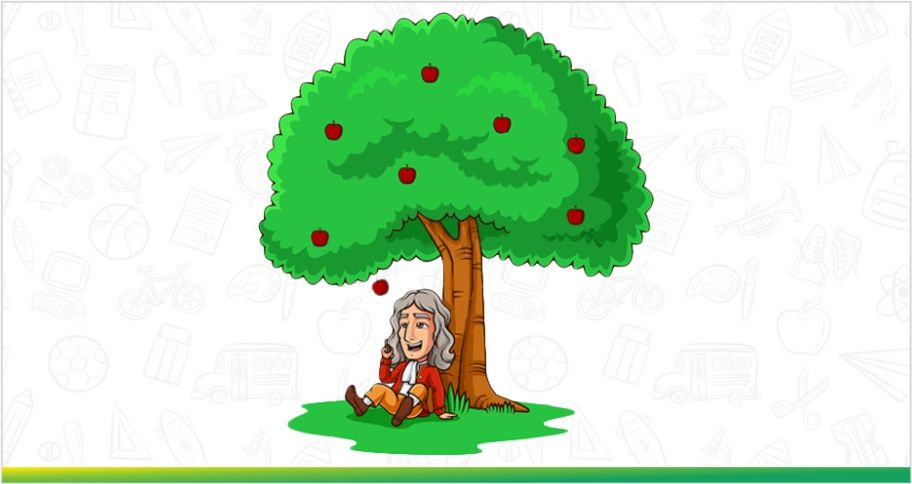Preschool & Perfect Place to Encourage Curiosity in Kids
Divya Chopra |
Child Learning |
2024-08-08 |
null mins read

Table of Contents
Introduction
“Why is the moon following us?”
“Why is 2+2 = 4 and not 5?”
“Why is the sky blue and not red?”
“Why can birds fly but not me?
These questions should definitely sound familiar to you! Years ago you must have asked these same questions to your parents too. While a lot of times we ignore these questions asked by our preschool kids, it reflects a very important inherent quality in them – curiosity.
Remember when an apple fell on Newton’s head and he almost made jam out of it? But why didn’t he? Because he was curious to find out about why the apple fell off the tree. Had he not been curious we would also be asking questions like our toddlers – “Why things that go up come down again?” All pre-schoolers have a little Newton hidden inside them somewhere. You simply need to let their curiosity bloom to allow them to scoop out a new discovery!

The constant urge to find answers to lesser asked questions, the itch to go beyond the black and white of things and dig deep into the grey with a longing to look for the “why” in simple pieces of information, not only makes preschool kids intelligent but also bold and confident. Kids are born with curiosity and to encourage this curiosity in their learning process, is a significant step that schools need to take to lay the foundation for their successful educational journey.
Put simply, curiosity of a toddler shows his/her thirst of seeking knowledge.
Quite often, questions asked by young kids get submerged in a classroom either due to a crunch of time or it being unrelated to the topic of discussion going on. However, in most cases, the teaching-learning methods used in the classroom does not provide the space for curiosity to bloom out of the minds of young learners. And so, the curiosity sort of gets buried as an unfulfilled desire to “know”.
Curiosity can surely lead to success. However, even in the modern era in which our millennial kids are growing up, traditional career options are still given more importance than the new ones that are emerging everyday! This is probably because career fields like engineering, medical, etc. are considered ‘safe’ options with less risk of failure and more chances of success. Every field requires a process, a journey that will take your child to the next level, step by step. What was considered as a risky and rocky career option is now a common choice among young dreamers. One of the best examples to support this idea would be of the former cricketer and captain of the Indian team, Rahul Dravid.
Cricket as a career option in the 90’s was not encouraged during the time. With both parents being well-educated and working, Rahul Dravid could have chosen a ‘safe’ career but what really drove him as a kid was his love and curiosity for cricket! His teachers and parents had always been supportive of his passion for cricket and that really helped him achieve great success in the field.
“When children are in pre primary school, one of the things that really defines them is their curiosity, how curious they are and so keen to learn new things.”
– Rahul Dravid
This was Dravid’s take on the importance of curiosity in the life of school-going kids in an interview with Orchids, The International School. Although hard work is a crucial factor to walk on the path of success, curiosity is what drives the journey towards it!
To push their journey of success, preschool kids need “a good pre primary school, one that really encourages this kind of curiosity in its children.” Encouraging new thoughts, ideas and most importantly questions asked by young minds are the primary steps towards appreciating and uplifting curiosity in kids. It not only showcases that they belong but also that their questions have a platform to be asked and answered too!

Most teachers have a “ask me a question” session at the end of a class which allows the students to raise their doubts and seek information. But the type of questions allowed to ask remains confined to the “syllabus” being taught and that is something that needs to be pushed out of its boundaries. And in the case of pre primary kids, patience is not their strong trait. They tend to follow their spontaneous nature and ask a question in the middle of the class! This is where a teacher’s reaction can make or break the kid’s morale. If the teacher allows the kid to proceed and answers the child or maybe politely request them to hold their thought and discuss it at the end of the class, the child will feel that his or her question matters. This not only makes them patient but also keeps the spark of curiosity alive!
On the other hand, if the teacher has an opposite reaction and does not entertain impromptu questions from the young students, the child would think twice before asking questions from the next class, thereby reducing their will to participate in classroom discussions. This might look like a small incident but in reality, little acts like these are what decides the degree of involvement of the child in the teaching learning process, not just physically but also mentally.
So, How Can you Welcome Curiosity in the Classroom?
- Body language should be welcoming enough for new questions, ideas, thoughts by the young learners. If they see you being interested in what they have to say, they will feel free to share their thoughts!
- Curious kids are always active. It’s time for the teacher to be an active listener too! Carefully listen to what they have to ask and answer their questions patiently.
- Their questions and your answers can be turned the other way around. Why don’t you ask them a question and spark a conversation? This will give them the opportunity to think, analyze and come up with their own viewpoints!
- Some topics may be difficult (and maybe boring) to teach, even for you! So why not turn them into something relatable to the young kids! Relating a concept to real life is known to help understand better than giving age-old examples time and again. Go ahead, try this in the next class!
- A conversational tone, rather than passive lecture, can be incorporated into the teaching learning process in the classroom. This will help in creating a comfortable, judgement free environment for kids to fearlessly ask questions and spread curiosity among peers too!
Curiosity is like Bitcoin!
Just like there are no regulators of Bitcoin, curiosity too can’t be regulated by anyone! You simply need to let your child invest themselves fully in activities that feed their curious mind. “They are sort of developing as young adults so they are very keen to explore the world around them..” Dravid speaks the mind of every parent who wants their child to explore and experience the world around them even in a school environment.

One of the challenges faced by teachers in a majority of schools is the high student-teacher ratio which does not allow the space for teachers to encourage curiosity in their students. Schools following the ideal ratio such as Orchids, The International School have been able to keep the spark of curiosity alive in students encouraging them to speak their minds and actively participate in classroom discussions!
Also read..
Why is Earth Day More Important than Ever?

